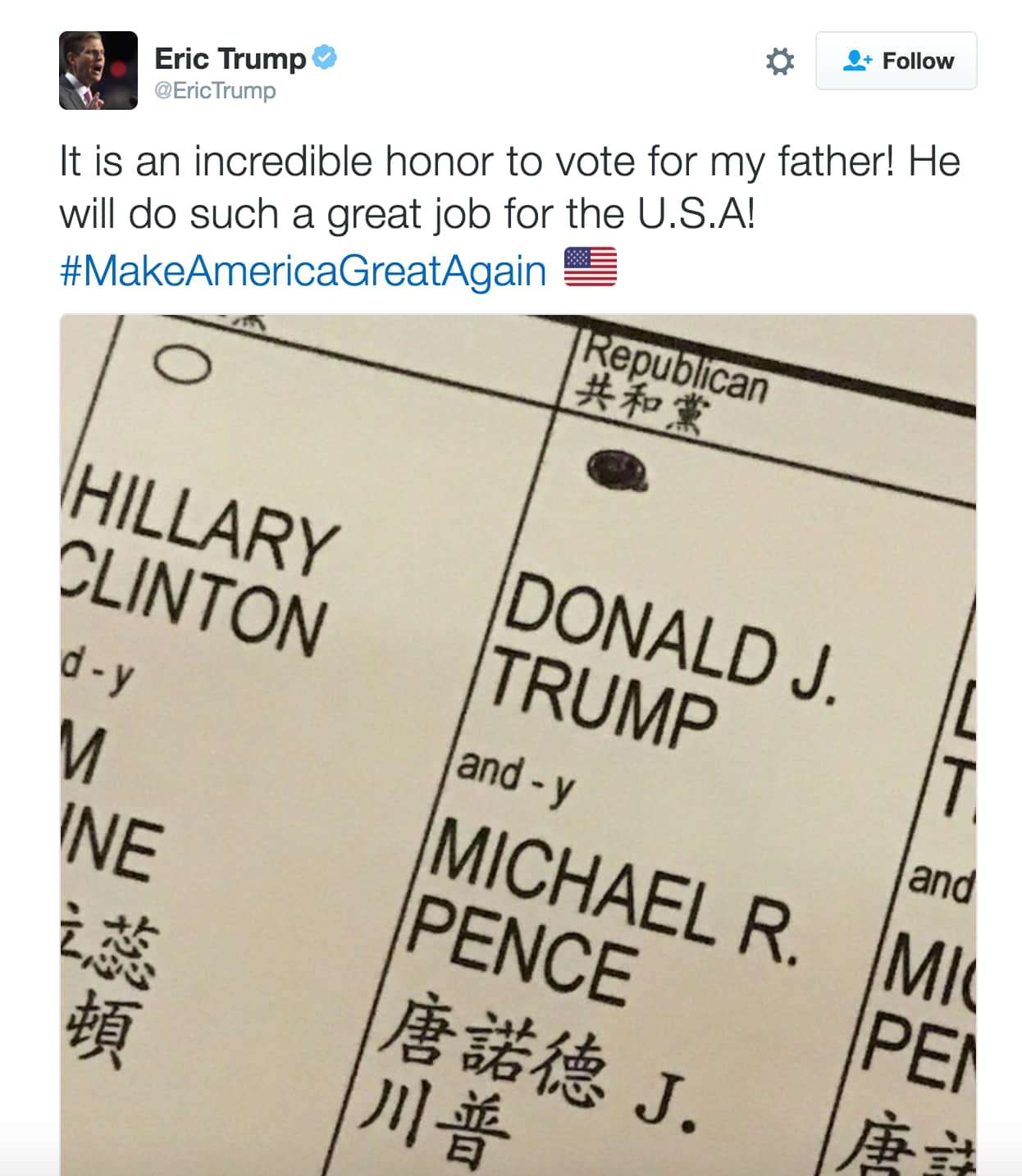The Volokh Conspiracy
Mostly law professors | Sometimes contrarian | Often libertarian | Always independent
Ballot selfies meet Eric Trump
Eric Trump has apparently tweeted a picture of his ballot, which is a crime in New York (see this Fortune blog post by Michael Addady):

Just last week, a federal judge refused to block the New York ballot disclosure ban (Silberberg v. Board of Elections), largely because that challenge was filed too close to the election:
This action was commenced 13 days before the presidential election, even though the statute has been on the books longer than anyone has been alive. Selfies and smartphone cameras have been prevalent since 2007. A last-minute, judicially-imposed change in the protocol at 5,300 polling places would be a recipe for delays and a disorderly election, as well-intentioned voters either took the perfectly posed selfie or struggled with their rarely-used smartphone camera. This would not be in the public interest, a hurdle that all preliminary injunctions must cross.
Yet though the court also suggested that the statute might be substantively constitutional, I think the U.S. Court of Appeals for the 1st Circuit was right to strike down the New Hampshire analog of the law on First Amendment grounds. (Disclosure: My students and I filed a friend-of-the-court brief in that case, on behalf of the Reporters Committee for Freedom of the Press.)
A law narrowly focused on restricting photography in the polling place might be permissible, on the theory that the polling place is a "nonpublic forum" run by the government, and restrictions on speech in such nonpublic forums are permissible if they are reasonable and viewpoint-neutral. But the New York law focuses not on the photography in the polling place, but rather on disclosure of the vote anywhere (and would equally cover photographs of an absentee ballot taken at home). And that sort of speech restriction violates the First Amendment.
So, Eric Trump, I don't agree with how you voted, but I'm glad to defend your right to take a photo of it.


Show Comments (0)